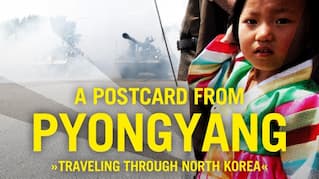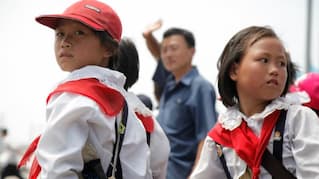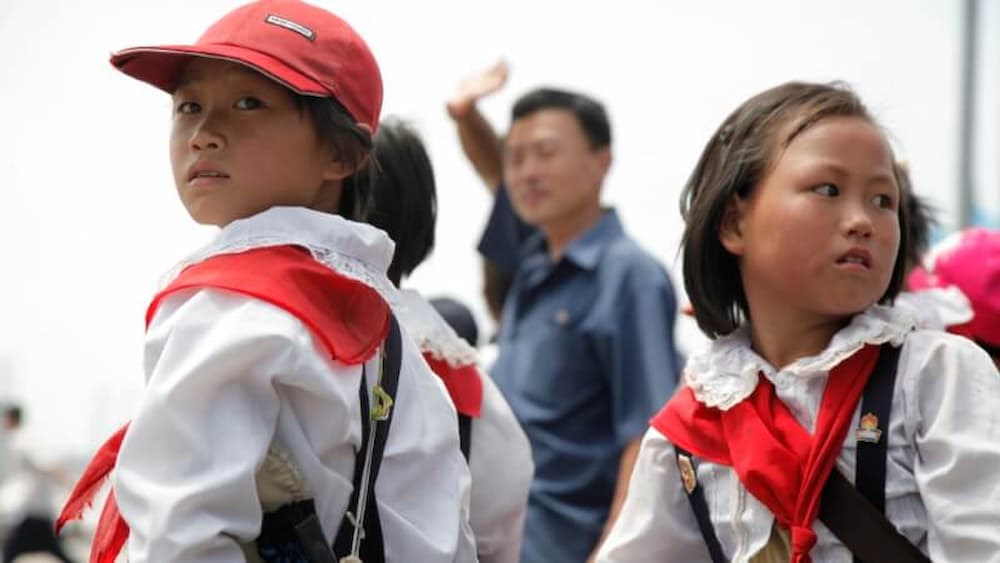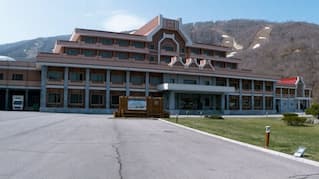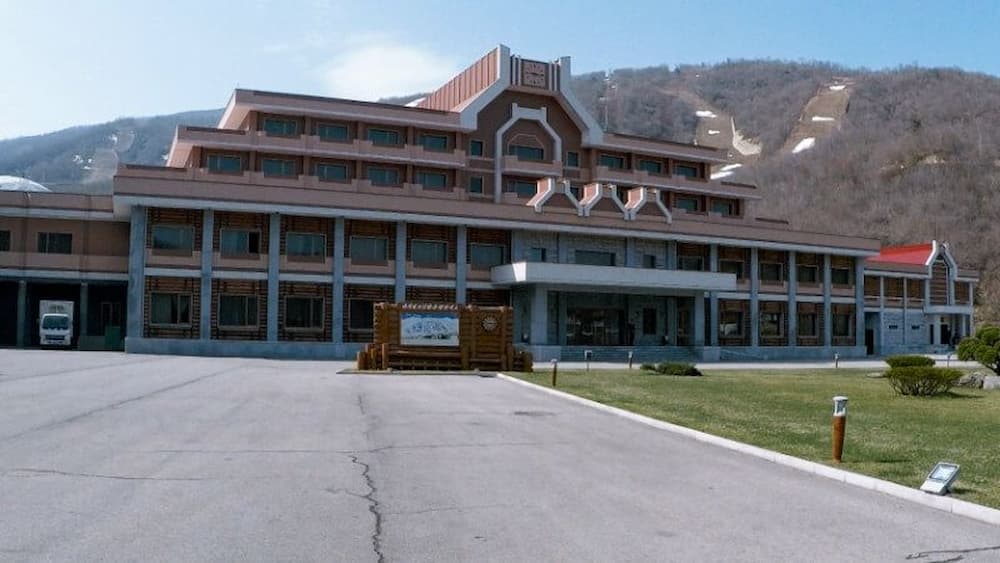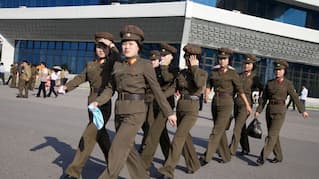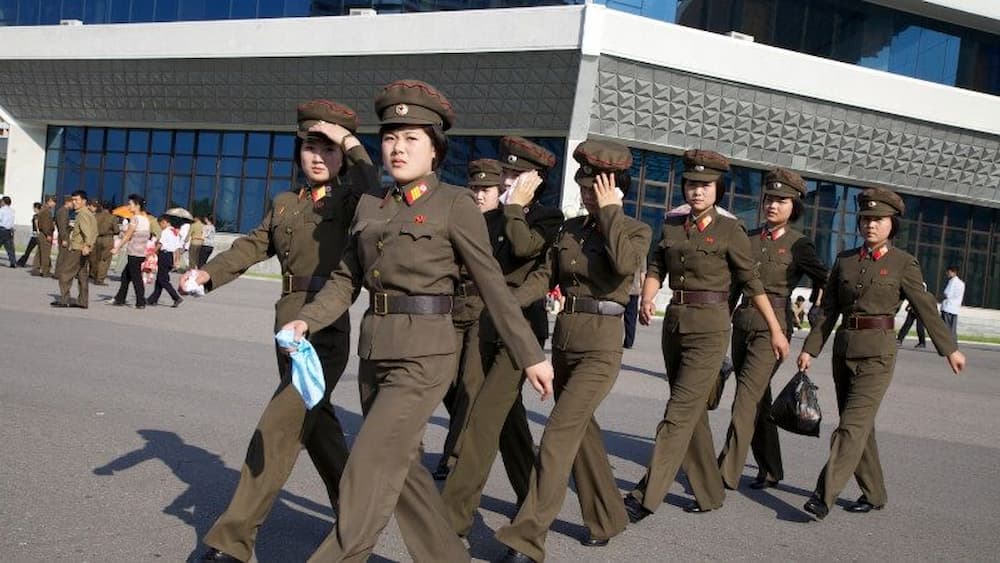A POSTCARD FROM PYONGYANG
Filmmakers Gregor Möllers and Anne Lewald visit North Korea in 2013 for the 60th anniversary of the end of the Korean War and again in 2017 for the Pyongyang Marathon as foreign tourists. Using secret recordings, they register their impressions of the notoriously closed country’s propaganda and their interactions with its people. They provide a rare glimpse of change in the notoriously closed country. As foreign tourists, they are not allowed autonomy or spontaneity, and their itinerary is arranged for them in advance by guides who chaperone them everywhere. Despite these limitations the Berliners find a way to register their impressions of a city lacking authenticity, a country longing for reunification and a people shaped by Juche beliefs and socialist propaganda. In a society steeped in obfuscation and spectacle, where deception is necessary for perception and expression, the filmmakers themselves must play a double role, secretly recording without permission while also genuinely relating to their hosts. By blending travelogue and espionage, A POSTCARD FROM PYONGYANG captures what happens when you rely solely on what you see, not what you’re told, and reveals what Kim Jong-Un’s regime doesn’t want foreigners to see… reality.
Festivals
- Florence Korea Film Festival, Italy (2020)
Synopsis
Filmmakers Gregor Möllers and Anne Lewald visit North Korea in 2013 for the 60th anniversary of the end of the Korean War and again in 2017 for the Pyongyang Marathon as foreign tourists. Using secret recordings, they register their impressions of the notoriously closed country’s propaganda and their interactions with its people. They provide a rare glimpse of change in the notoriously closed country. As foreign tourists, they are not allowed autonomy or spontaneity, and their itinerary is arranged for them in advance by guides who chaperone them everywhere. Despite these limitations the Berliners find a way to register their impressions of a city lacking authenticity, a country longing for reunification and a people shaped by Juche beliefs and socialist propaganda. In a society steeped in obfuscation and spectacle, where deception is necessary for perception and expression, the filmmakers themselves must play a double role, secretly recording without permission while also genuinely relating to their hosts. By blending travelogue and espionage, A POSTCARD FROM PYONGYANG captures what happens when you rely solely on what you see, not what you’re told, and reveals what Kim Jong-Un’s regime doesn’t want foreigners to see… reality.
Festivals
- Florence Korea Film Festival, Italy (2020)

